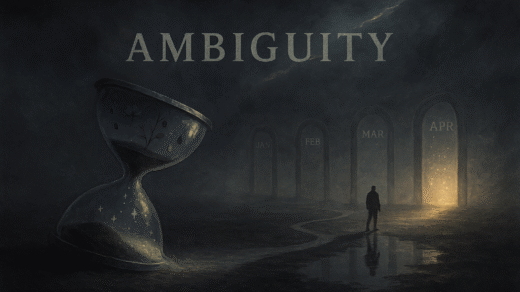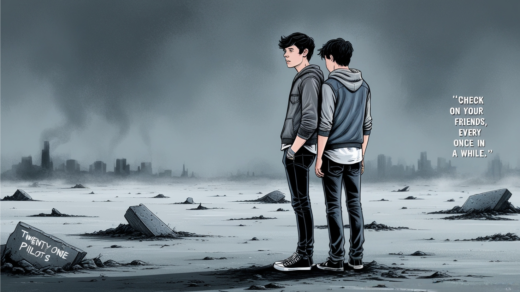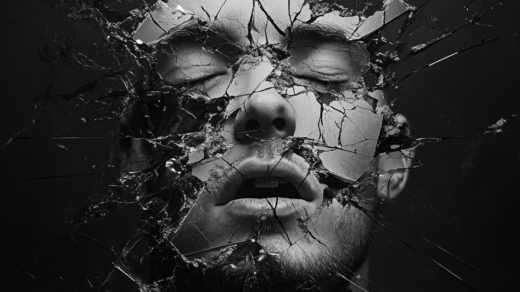The following post is about a personal issue. It is a long post, an unedited thought-stream from my mind as of 10/1/16. I’ve been keeping all this in for far too long, and now as I can read it back here, I can let go of keeping it all inside. I make no apology for any of the following.
As some of you may know we had some family issues go down here on the 1st December when a close aunt suffered what was suspected to be a heart attack. It turns out that wasn’t the case but we wouldn’t know that till hours and many tests later, and really that was just the start. What we as family co-inhabiting the same living space saw was an unresponsive, uncommunicative relative new to unconsciousness at 5am on the morning of the 1st December 2015. After being made aware of the situation at hand by my Mother who was trying to keep her still on her bed, adrenaline kicked in for me as did my brief medical training. After finding her to be unresponsive I was tasked with the decision of ‘does she need help we cannot provide’. The answer was obvious, yes. I called for assistance.
It has been several years since I have had to call 999 (thankfully) for assistance of any kind, and I was surprised therefore when the operator answered the phone immediately, no rings, straight through to the operator who asked what service I required. Again immediately the telephone was answered and the ambulance operator started asking me questions. After the usual formalities are dealt with the operator told me that a rapid-response car had been dispatched along with a paramedic unit and that she would stay on the telephone until the units arrived at the door. This was both reassuring and disconcerting. Reassuring as to keep me as calm as possible so that the situation could be dealt with rationally and disconcerting by the questions I was being asked. As the symptoms described to the operator must have hit keywords as to indicate a heart attack, the operator asked me if we had an AED device and if so to “attach the pads and be prepared to make delivery”. – Moot point anyway as why would a generally healthy household have an 8k device just collecting dust in the corner. But I understand sequence and informed the operator that we have no AED. The operator did indeed remain on the telephone with me until the Paramedics where inside the house.
A rapid response car did arrive… at the same time as the Paramedic unit, about 10-15 minutes after the call was first placed. This felt like an age at the time. Now correct me if I am wrong, but isn’t rapid response, by the very nature of the name supposed to arrive before the Paramedic unit to indeed assess if a Paramedic unit is required? – We’ll revisit that some other time. So the Doctor and Paramedics arrived and I repeated the symptoms as asked for and showed them up to my aunt who was still unresponsive on the bed. They set to work and some things will stay private.
About 20-30 minutes later they brought a chair into the house to remove my aunt down the stairs and into the Paramedic unit. It was decided that she would need to be taken to hospital immediately under blue-light conditions and my Mother went with her in the ambulance. I remained at the house to get dressed and make an attempt to clean up a little of the mess the Paramedics left behind in her room. I didn’t want anyone, particularly my Mother or aunt, or other members of the family to have to go into that room and see the left overs from the life saving efforts that took place. I left for the hospital.
When I arrived at the hospital my Mother and aunt where inside already but it being just after 6am in the morning, no normal shift staff where around on reception (I have to believe that) as the twat who I spoke with when I arrived was a jobs worth who really didn’t have a caring or could be bothered atom in his body. A deep breath later and I was inside. I found my Mum somehow, she was inside a cupboard. A relatives room with no windows. Think converted disabled toilet, left to rot for years without cleaning or care. My aunt was in Resus where she was being assessed and over the course of the next 30-40 minutes different doctors, nurses and other staff would periodically come and talk to us. Including a doctor who had one of those moustaches that curl up at both ends. What he was trying to tell us was very serious, but we were both distracted by his moustache.
Finally they let us both in to see my aunt, who was lucid, on o2 and laying down talking. From here we stayed with my aunt as much as possible while they conducted various tests. A specialist team of doctors were called in from Broadgreen and together with them and the tests that were being conducted, they ruled out the possibility of a heart attack. At one stage she needed to have a CT scan but they were worried about her stability in taking her to CT so they were discussing a portable scanner. In the end they rushed her through for an emergent scan. The staff that she was cared for in Resus were all specialists in their own fields all called in from different departments and even hospitals to assist. The service received was second to none. Then we met a double act of a Student and Teacher who hadn’t worked together since the Student completed medical school. What was funny was they both had different thoughts on the chosen cause of action, and to see them work together to come to a common solution was inspiring.
Diagnosis: The conclusion the Doctors and Specialists came to eventually was that my aunt was suffering from an acute onset of a huge blood clot. The clot was covering both lung entries and placing pressure on her heart. They started treatment to reduce it’s size with blood thinners. After about 10 minutes they started to brief us on a super-buster drug that they sometimes used for Stroke patients, and that they may have to consider giving it to my aunt. They told us all the side effects. They were dire. Internal bleeding being the main side effect. Now internal bleeding is bad enough, but when you consider internal bleeding issues with patients who’s blood is being medicated not to clot… Things get interesting and scary. We were told that there was a 25% chance of internal bleeding. They asked for consent from my aunt who at this point was still lucid and able to ask us our opinion and then continue. We of course supported her decision. They started to push the drugs to break up the clot so that she wouldn’t require surgery.
At this point family arrived and my aunt lost her lucidity. Coldness began along with evidence of the side effects starting to come into play. It really was a quick as the doctors saying “now you may start to see some side effects such as a nose bleed..” – cut to – “my nose is bleeding uncontrollably”. I am going to skip ahead at this point as otherwise we’ll start to discuss issues I don’t really wish to. Medically once the drugs were pushed her condition, as advised, started to deteriorate. The next stage was that she was transferred up a floor out of Resus to ICU.
Stabilisation: The next phase was the Intensive Care Unit. She was placed on the ICU as she required the one to one care that the simply super-human staff of the ICU could provide her. The stay in ICU seemed like it went on for weeks, but in reality I think it was almost a two week stay. During this time there were ups and downs to her condition and all of those were dealt with by us, her family the best we could. Not everyone is the same, and where some people can only see the positives, others can see the dark side too. I think sometimes it’s these people who can see potential issues who are the best prepared to handle such situations should they come to fruition. That’s not to say the positives have it wrong. It’s a valid viewpoint, but I think it puts more pressure on your emotions if you are unprepared to the possibilities. The ICU stay included a small operation to have a tube inserted up my aunt’s nose and down into her lungs which was there to help her breathe. During this time she was unable to speak and so the task of communication relied upon the use of a notepad and a pen. This was for me the scariest time.
Me.. I am a researcher. I like to know how things work, why things may not work and what can happen if things don’t work the way they should. Knowledge is what gets me through, that’s my coping mechanism. So I read, I try to understand things and take things in. What eventually drove me to my tipping point was the noise from the machines keeping a check on every aspect of my aunts bodily functions. That combined with the fear that once the tube was removed, there would remain issues related to communication – another possibility in the ranging raft of side effects. She got through this uncomfortable phase in the end just fine. But we won’t talk about the scars that this has left behind on family. Some of which are more visible than others.
Recovery: After the stay in ICU my aunt was awaiting a bed on a recovery ward where she’d spend a few days and get herself eating again, bodily functions operational and be passed as fit enough to return home. I think it’s a universal thing with most people, if you mention the word ‘home’, it flicks a switch on somewhere that says ‘Hey, if I lie about everything in here, I’ll get to go home quicker’. People are stupid. The time spent on the recovery ward was longer than the time spent in ICU. That is to be expected. The change in her condition was quick, probably boosted by a desire to ‘get out of there’ as quickly as possible. Which yes, I can fully understand. But I just think that, perhaps if it were me, I’d like to think a little more about how I am going to cope when back at home, away for the 24 hour one to one care, bedpans and no responsibilities. I’d like to think I’d leave when medically ready, not when staff can finally be convinced to let me out.
Before I go any further, I feel I must take a second to recognise the outstanding work of all the medical professionals involved in the care that my aunt, and we as her family received. The NHS is a lot of things but the staff working with my aunt were all very dedicated (aside from the receptionist who dealt with me initially). Thank you so much for saving my aunt’s life and playing a huge part in mine. You’ll never be forgotten.
There are some things that I wont talk about in detail. I won’t talk about Poogate. I won’t talk about the witch in the corner. I won’t talk about the family advice and I won’t talk about the cleaner who’s daily activities were literally wiping a lightswitch. But I will talk about lying. I don’t tolerate lies. They waste my time, and they simply hurt. More so when they come from aunt’s who were minutes away from death. Poogate happened because of a lie told to me and several opportunities later, and still today lies are being told. Lies hurt.
Home & The Dark Side of Recovery: The unsung heroes of any family are those who offer unconditional support without expecting anything in return. We have what we wanted in return, we have her back home. She was home about a week before Christmas. She is alive. But the part that hurts is the seven-step process of the patient coming to terms with what has happened to them. The seven stages of death apply to recovery too, that’s what some people don’t seem to understand. Patients can feel that a part of them has died, and it is up to the support network of family to recognise that and act appropriately around the patient. Denial is one of the stages, so is Anger. Denial has been a regular feature since returning from the hospital, there is a place set for it at the dinner table and it has now started paying rent. Anger is a newer friend of Denial. Anger has been hanging around in dark corners and behind doors waiting to pop up and explode at any moment without the need for notice or reason. I sure hope he goes away soon as those who care the most ALWAYS end up getting hurt the most.
My aunt will likely never know or fully realise the hurt and pain that her family here has been through with her on her adventure. The focus has been on her since 1st December, as it should have been, and ask she continues down the path to recovery and rehabilitation, these visitors will I am sure be a regular feature. But living together, the thoughts and feelings of ALL involved had to be taken into consideration, and sometimes that simply boils over. The interesting thing will be to see how the situation resolves itself, as the initial fear of death and her being literally minutes away from it, in her room, in this house, and the effect that THAT realisation has had on my Mother and I. It will be interesting to see if before we all go to bed tonight, if any effort will be forthcoming to at least say goodnight.











